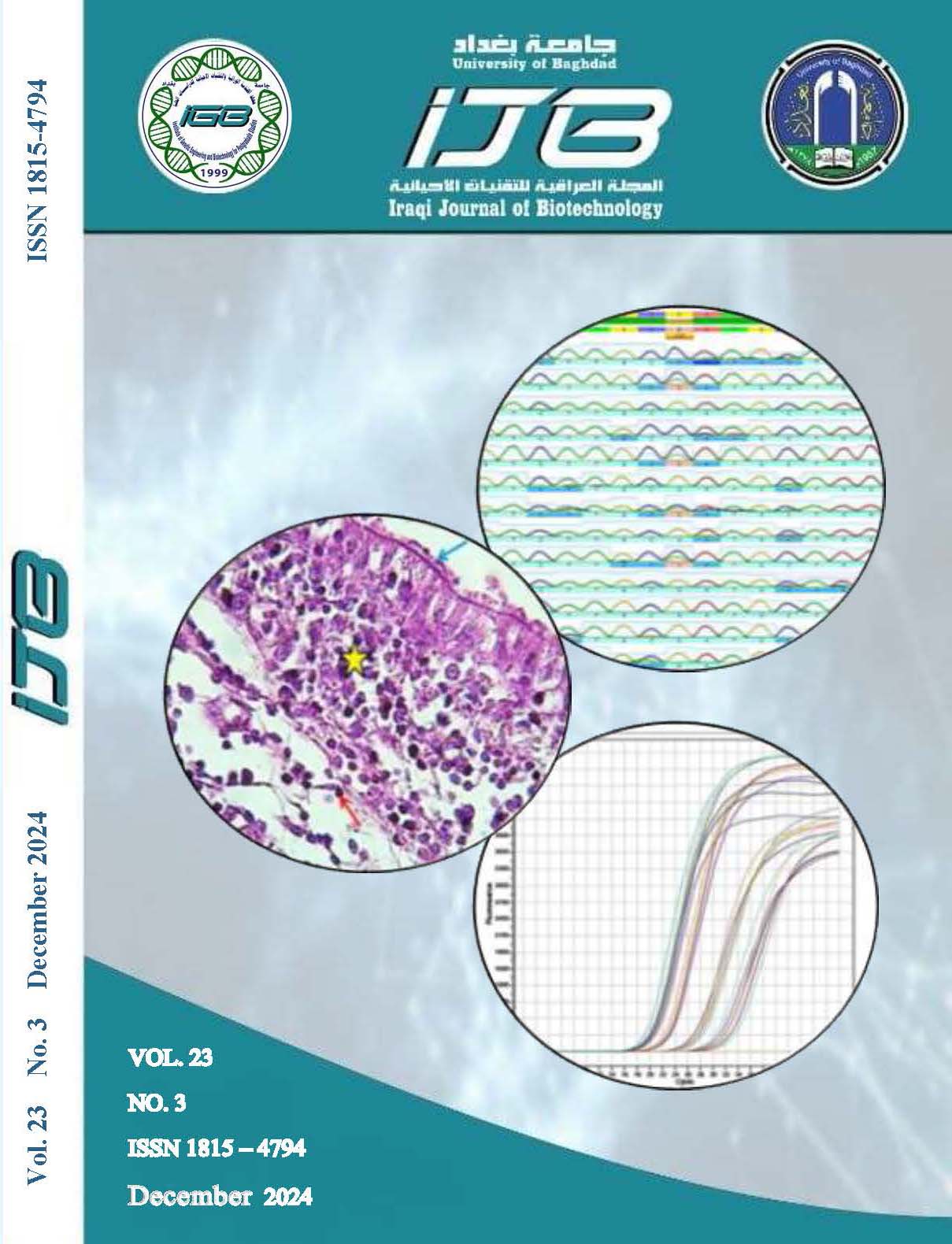Evaluation of Blood Clot Removal Using Immobilized Nattokinase by Carbon Nanotube from Pseudomonas aeruginosa
Abstract
Nattokinase (NK) enzyme has been mentioned to have effective fibrinolytic activity and it has amenities over other commercially used medicines in preventative and prolonged effects. Therefore, this study aimed to characterize, immobilize NK from local isolate of P. aeruginosa and applies its fibrinolytic activity on blood clot. A previously isolated P. aeruginosa, which was obtained from wound burn infection and identified using different examinations, and it diagnosed employing PCR with 16SrRNA gene (956bp), then previously screened to produce NK enzyme under optimum conditions. The results indicated that partial purified NK has the best activity in pH 7.5, with enzyme activity of 34.33 U/ml. Also, the stability of NK was detected in pH range from 4.0 to 8.5. The best temperature of NK activity was 45°C the NK stability was at temperatures ranging from 25 to 45°C. Casein was the best substrate with high activity (70.6 U/mg protein) of partial purified enzyme, then the activity decrease with bovine (47 U/mg), fibrin (63.36 U/mg), gelatin (31.36 U/mg), collagen(32.22 U/mg). NK has been successfully immobilized covalently on the functionalized carbon nanotube (MWNT). The enzyme loading was 67.14% by using amount of (706 U/mL) NK per 3 mg of MWNT. It was concluded the blood clot degradation by NK was determined by dissolving human blood clot, and the result indicated that the NK display excellent fibrinolytic activities in vitro.


